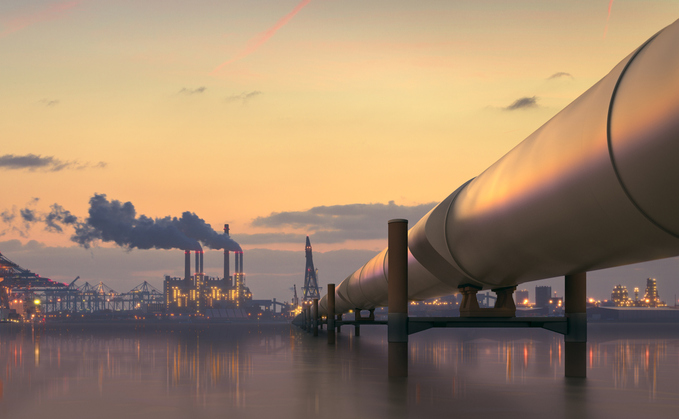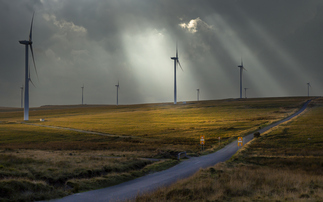
Credit: iStock
IEA and OECD reiterate calls for governments to shift investment away from fossil fuels and towards low carbon energy as 'only lasting solution to global energy crisis'
The world's leading economies sharply increased subsidies for fossil fuels last year, as governments struggled to balance pledges to cut financial support for coal, gas, and oil consumption with efforts to protect vulnerable households and businesses from surging energy costs.
That is the sobering conclusion of a new joint analysis from the OECD and the International Energy Agency (IEA) released today, which shows that overall government support for fossil fuels across 51 countries analysed almost doubled to over $697bn in 2021, up from over $362bn the previous year.
Moreover, with energy prices having continued to spiral upwards this year in the wake of Russia's devastating war in Ukraine, subsidies for the production and consumption of coal, gas, and oil are expected to rise even higher in 2022.
Last year, hundreds of countries around the world signed up to the Glasgow Climate Pact at the COP26 Summit, which committed governments to phasing out inefficient fossil fuel subsidies and phasing down the use of unabated coal power. Meanwhile, the IEA has become increasingly vocal in warned that further fossil fuel exploration would simply identify reserves that can not be burnt if the world is to stand a chance of limiting global average temperature rises to 1.5C.
But Russia's invasion of Ukraine and the resulting energy supply crunch has prompted governments around the world to move to boost supplies of alternative sources of oil and gas. For example, US President Joe Biden's landmark climate bill included plans for new oil and gas licenses alongside multi-billion dollar investments in clean technologies, while just today reports emerged that prospective UK Prime Minister Liz Truss is poised to put new North Sea oil and gas projects at the heart of her response to the worsening energy bills crisis.
But while acknowledging the challenges faces by leading economies during the global energy crisis, IEA executive director Fatih Birol warned that fossil fuel subsidies remained "a roadblock to a more sustainable future". "A surge in investment in clean energy technologies and infrastructure is the only lasting solution to today's global energy crisis and the best way to reduce the exposure of consumers to high fuel costs," he stressed.
Both the IEA and OECD separately produce their own databases providing estimates of different forms of government support for fossil fuels, but today's analysis combines both organisations' data. It covers estimates for 51 major economies spanning the OECD, G20, and 33 major energy-producing and consuming countries that represent around 85 per cent of the world's total energy supplies.
The OECD carried out analysis of budgetary transfers and tax breaks linked to the production and use of coal, fossil gas, oil, and other petroleum products in G20 economies, which found that total fossil fuel support rose to $190bn in 2021, up from $147bn the previous year.
In addition, subsidies for fossil fuel producers in 2021 reached levels not previously seen in the think tank's analysis, rising almost 50 per cent year-on-year to $62bn in 2021 - almost 17 per cent above pre-pandemic levels.
These subsidies have helped partly offset producer losses that resulted from domestic price controls in some countries as global energy prices surged in last 2021, according to the analysis.
Meanwhile, it estimates consumer support from governments reached $115bn last year, up from $93bn in 2020, underscoring the huge inefficiency of economies both subsidising fossil fuel production while also handing out billions in support for consumers facing surging energy costs. The level of consumer support is set to rise massively this year, as governments around the world move to provide households and businesses with direct support to help them cope with energy bills that in many cases have more than trebled in the past year.
In contrast, the IEA produces estimates of fossil fuel subsidies by comparing prices on international markets and prices paid by domestic consumers that are kept artificially low using measures such as direct price regulation, pricing formulas, border controls or taxes, and domestic purchase or supply mandates, it explained.
Covering 42 economies, the IEA analysis found that consumer support increased to $531bn in 2021, more than triple their 2020 level, driven by the surge in energy prices experienced last year.
As a result, both the IEA and the OECD reiterated their calls for a global phase-out of inefficient fossil fuel support, alongside a redirection of public funding towards low carbon alternatives, energy efficiency programmes, and wider measures to enhance energy security.
"Russia's war of aggression against Ukraine has caused sharp increases in energy prices and undermined energy security," said OECD secretary-general Mathias Cormann. "Significant increases in fossil fuel subsidies encourage wasteful consumption though, while not necessarily reaching low-income households. We need to adopt measures which protect consumers from the extreme impacts of shifting market and geopolitical forces in a way that helps keep us on track to carbon neutrality as well as energy security and affordability."
Most governments appear to be responding to the global energy crunch with a mixture of emergency financial support, increased domestic oil and gas production, and longer term plans to boost renewables and nuclear development and improve energy efficiency. The future of global climate goals looks set to be determined by how quickly leading governments can move beyond subsidising the fossil fuel industry to artificially curb soaring energy prices and deliver a sustained switch to those cleaner sources of energy that can hold bills down long into the future.










